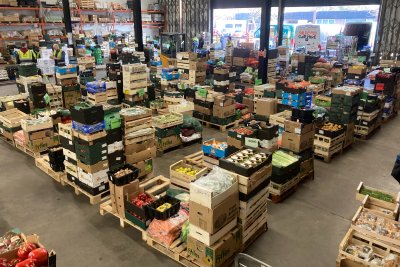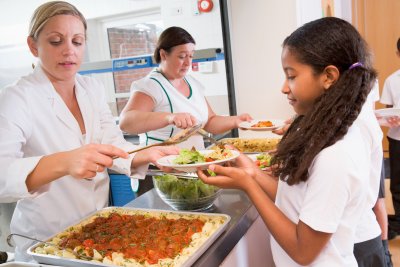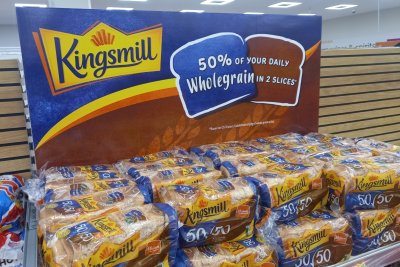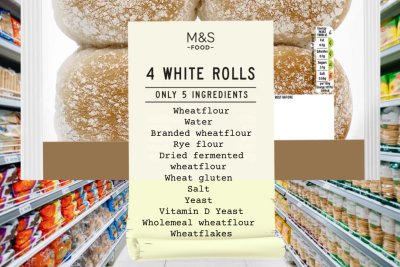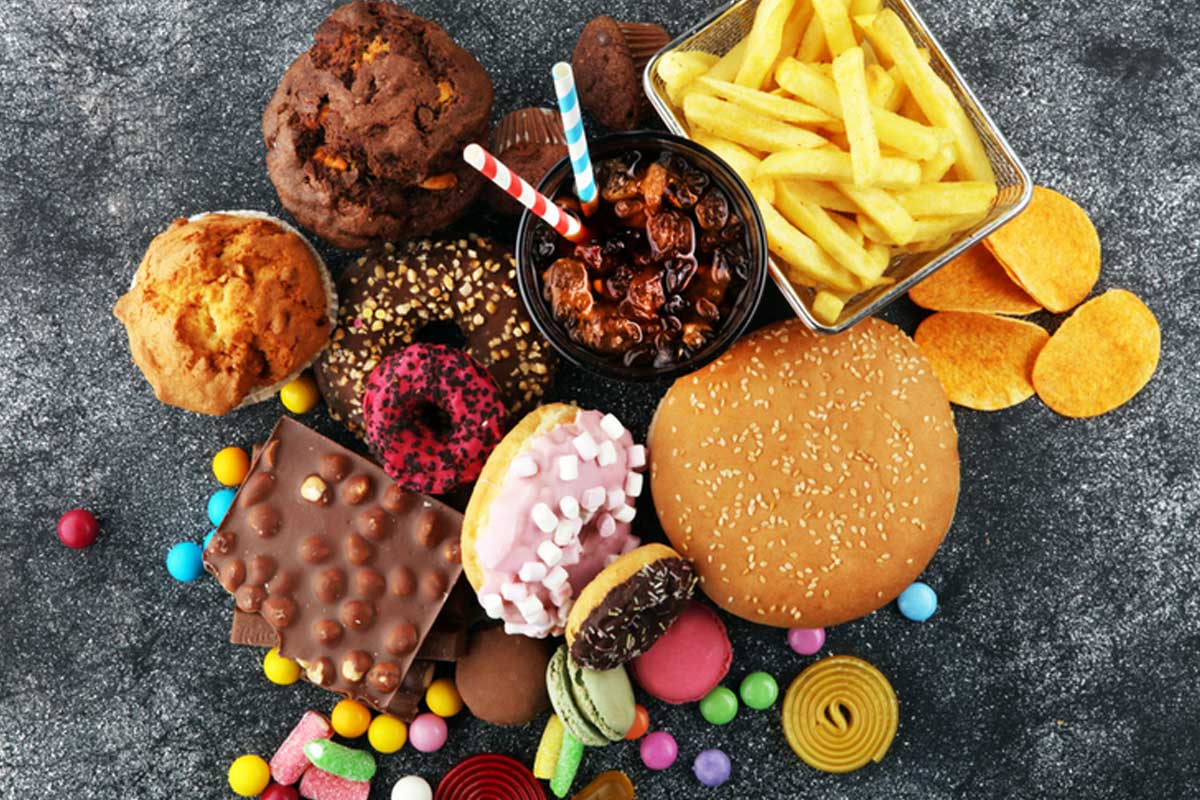 Junk food Credit: Shutterstock image
Junk food Credit: Shutterstock image
Junk food donations: when “aid” harms health
The recent crisis has stretched the public sector’s capacity to support local communities. Contrary to the intended halo of generosity, donations from junk food companies are putting further pressure on a sector trying to be coherent with their health messages and provide nutritious food to families in need. Karolay Lorenty Vera highlights the magnitude of unhealthy food aid being thrust on the public sector and how they can tackle the issue.
As extreme poverty is expected to double by Christmas[1], there is an urgent need to ensure that everyone has access to healthy food. It is not an easy task. With overworked staff and unprecedented numbers of at risk residents, local authorities have found themselves undertaking a role that many are not equipped, trained or prepared for. Delivering the right parcel to the right person and ensuring they’re reaching all the residents in need of support is alone a logistical challenge. The additional pressure of sourcing large amounts of food with limited funds weighs down on local authorities. In these conditions, taking free HFSS donations to help bulk out a food aid parcel is understandable, but problematic.
How widespread are HFSS food donations in the public sector?
Lockdown has uncovered and amplified long-standing issues. The usual displays of generosity by large companies producing HFSS products have become more pronounced. Hospitals, police and fire stations from Edinburgh down to Sussex, have received these enticing offers. The preferred gift choice has been unsold easter eggs from companies such as Nestlé and Cadbury’s. As local authorities have stepped up to support their communities and address food insecurity, they have also been targeted.
A London local authority reported being the recipient of soft drinks that were expressly dedicated to NHS staff and other at risk communities, including care homes and social care services. In particular, the NHS has been inundated with bags of HFSS food and drinks[2], despite the harmful effect that such donations would have on the productivity and performance of already overworked staff[3]. Another local authority was offered a staggering 97,000 easter eggs to distribute. Incongruent with health messages and their commitment to improve wellbeing, the donation was turned down. No longer just a treat, this unhealthy food is depriving individuals of the essential nutrients they need.
Has your local authority been offered HFSS food and drink donations? Or have you brought in measures to stem the flow of unhealthy food and drinks going into food aid? We'd love to hear your insights. Get in touch with Fran Bernhardt, Children’s Food Campaign Coordinator fran@sustainweb.org
Why is HFSS food aid a problem?
In April 2019, a Lancet study[4] revealed that poor quality diets are responsible for more deaths than smoking, causing one in five deaths worldwide. Unhealthy diets and obesity are major risk factors for noncommunicable diseases, which are estimated to cause 89% of deaths[5] in the UK. The impact of coronavirus has accentuated the importance of nutrition. The link between body mass index (BMI) and severe coronavirus is clear; simply being overweight increases the risk of complications[6]. Moreover, obese people are “74% more likely to be admitted to ICU, and 48% more likely to die”.
However, obesity is not equally spread across the population, there is a clear socioeconomic relationship. In England, regions with more financial struggles have experienced the biggest increase in childhood obesity[7] since the financial crisis of 2008. Coincidentally, it is also people in low-income areas that are twice as likely to die from coronavirus[8]. Covid-19 will lead to 1 million more people living under the poverty line in 2021[9], including 200,000 children. As health inequality prevails, obesity and precarious health conditions will increase in low-income communities.
Local governments cannot advise a healthy lifestyle to tackle obesity while simultaneously giving out HFSS food to some of the most at risk residents. In fact, it is unreasonable to expect low-income families to eat their 5 a day and cut down on sugar when the only food they have access to does not meet such standards. There have been complaints regarding the food provided during lockdown; an attendee of the Food Power Gathering 2020 mentioned[10]: “The pre-existing food aid providers have nutritional guidelines they must follow which is not necessarily being followed by new response groups”. If local authorities want to maintain their credibility and gain the trust of the public, they must be coherent and keep nutritional standards in the food they provide.
Additionally, collaborations with HFSS companies in times of need may put local authorities in an uncomfortable position once the emergency is gone. After depending on their contribution to supply the population and forming tighter relationships, it may be more difficult for councils to be in control of future interactions. Some local authorities have already taken the reins over their partnerships to ensure their commitment to health. For instance, several London councils have signed letters against the Coca-Cola Christmas Truck Tour[11] in their local area, turning their backs on the distribution of sugary drinks to protect the health of residents.
In the midst of an emergency, when as much support as possible is needed, it can be difficult to restrict what is accepted or not. Nevertheless, in terms of health, certain types of help are best avoided. In 2017, the United States’ Federal Emergency Management Agency decided to send HFSS food shipments to the survivors of Hurricane Maria in Puerto Rico[12]. The packages, which contained crisps and sweets like M&Ms and Twizzlers, sparked the fury of residents[13]. One of the locals complained that after 4 weeks without water or food aid, her family had received two cans of Beefaroni and crackers, while another pondered “Who in their right mind would think this qualifies as a meal?”. The public health nutritionist Uriyoán Colón-Ramos, who performed a nutritional analysis of the food items, demanded the monitoring of food aid.
The worldwide prevalence of obesity has tripled in the last 50 years[14]; in the UK, one in four adults are obese[15]. If we wish to genuinely help those in need, we must protect their health. Providing HFSS food to families that are already more likely to be obese and at higher risk of a multitude of dieases cannot be considered “aid”. The choice between no food and junk food is a false dichotomy. Deciding to provide healthy food to people is the only way to keep them away from disease and improve their wellbeing.
What can local authorities do?
With a 63% increase in the number of low-income families[16] finding it difficult to cope financially after the first lockdown and a recession looming, it is likely that local governments will continue to play a key role in delivering food aid. This new responsibility needs to be consistent with the efforts to tackle obesity and the promotion of key health messages.
Councils can make use of their Declaration on Sugar Reduction and Healthier Food or Declaration on Healthy Weight to defend their position against access to HFSS food. During the pandemic, Greenwich Council has established measures to monitor the nutritional quality of the food offered to their community. Public Health and Greenwich Co-operative Development Agency (GCDA) have collaborated to redirect unhealthy food products. The GCDA has been responsible for discussing their adherence to the Good Food in Greenwich (GFiG) principles to avoid harmful partnerships.
Using the guidance provided by nutritional experts and the support of senior leaders, councils can take effective measures to protect public health. In difficult times, when vulnerable populations are most at risk, small actions to ensure access to nutritious food can be crucial, determining the health of present and following generations.
“The true measure of any society can be found in how it treats its most vulnerable members”
Mahatma Gandhi
What would support your local authority to better protect itself? Let us know by emailing Fran Bernhardt, Children’s Food Campaign Coordinator, on fran@sustainweb.org
[2]https://www.sustainweb.org/blogs/may20_junk_food_marketing_covid/
[3]https://hbr.org/2014/10/what-you-eat-affects-your-productivity
[4]https://www.nhs.uk/news/food-and-diet/poor-diet-now-killing-more-smoking/
[5]https://publications.parliament.uk/pa/ld201617/ldselect/ldnhssus/151/15109.htm
[6]https://www.sciencemag.org/news/2020/09/why-covid-19-more-deadly-people-obesity-even-if-theyre-young
[9]https://www.ippr.org/files/2020-06/estimating-poverty-impacts-of-coronavirus.pdf
[10]https://www.sustainweb.org/blogs/jun20_foodpowergathering2020/
[11]https://www.sugarsmartuk.org/news/nov18_coke_truck/
[13]https://twitter.com/DavidBegnaud/status/929849787872137216
[14]https://www.who.int/news-room/fact-sheets/detail/obesity-and-overweight
[15]https://www.nhs.uk/conditions/obesity/
[16]https://cpag.org.uk/sites/default/files/files/policypost/Poverty-in-the-pandemic.pdf
Children's Food Campaign: Campaigning for policy changes so that all children can easily eat sustainable and healthy food.
Sustain
The Green House
244-254 Cambridge Heath Road
London E2 9DA
020 3559 6777
sustain@sustainweb.org
Sustain advocates food and agriculture policies and practices that enhance the health and welfare of people and animals, improve the working and living environment, promote equity and enrich society and culture.
© Sustain 2025
Registered charity (no. 1018643)
Data privacy & cookies
Icons by Icons8
